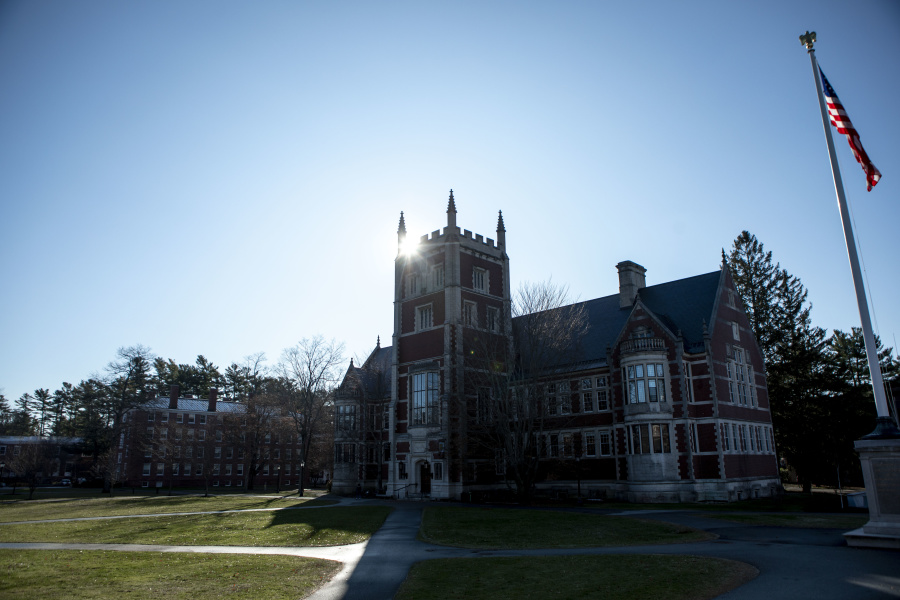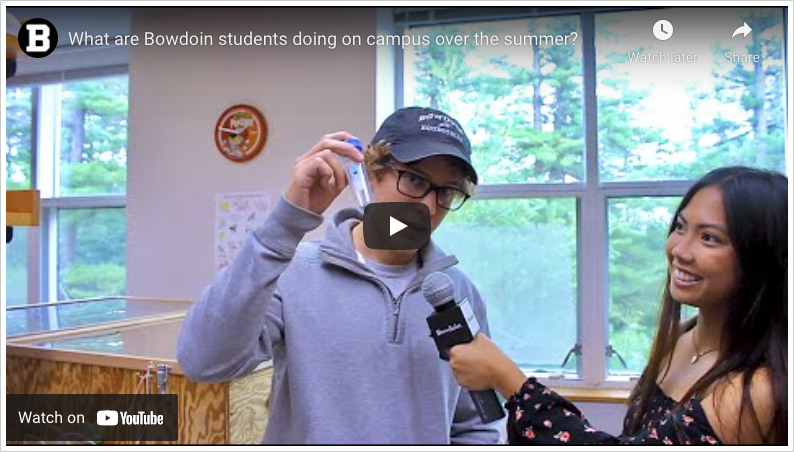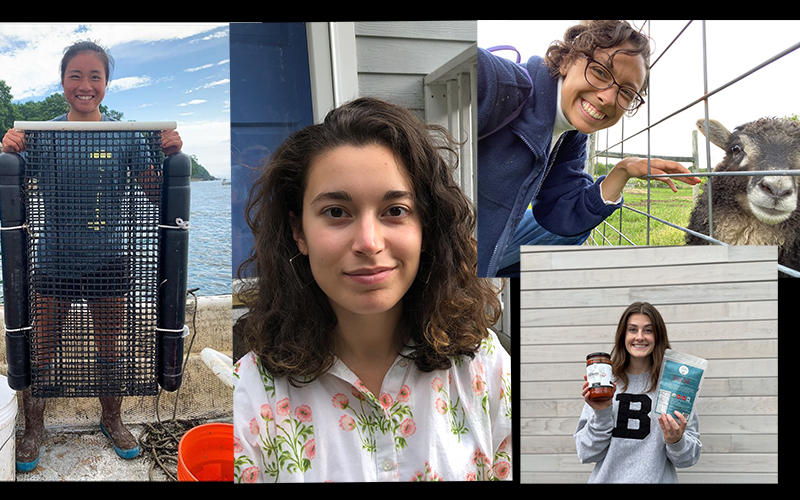With Idea to Reuse Brewery Grain, Bowdoin Students Tie for First in ME Food Challenge
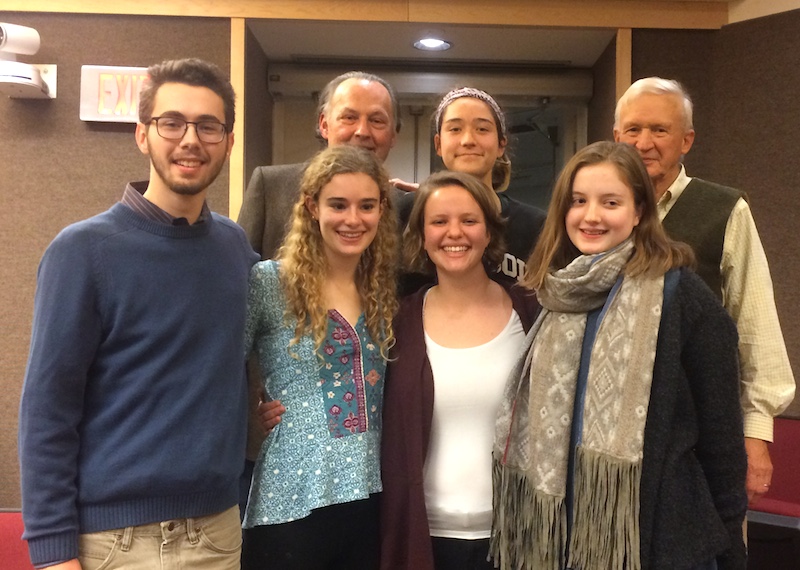
A team of students led by Eliza Huber-Weiss ’17 has come up with a winning business idea that not only takes advantage of the growing craft beer market in Maine, but also reduces food waste.
Maine has more than 60 breweries, with more expected to open in the coming years. Each one ends up producing heaps of spent grain after boiling it in the early stages of brewing. Some breweries give this waste product to pig farmers, while others have tried using the grain in dog treats and granola bars.
The Bowdoin students have proposed using the grain for flour. “It’s super healthy,” Huber-Weiss said, and makes a bread with a nutty, malty flavor and lots of fiber. “We want to make a flour because Maine is lacking in a source of local flour. It’s hard to grow grains here.”
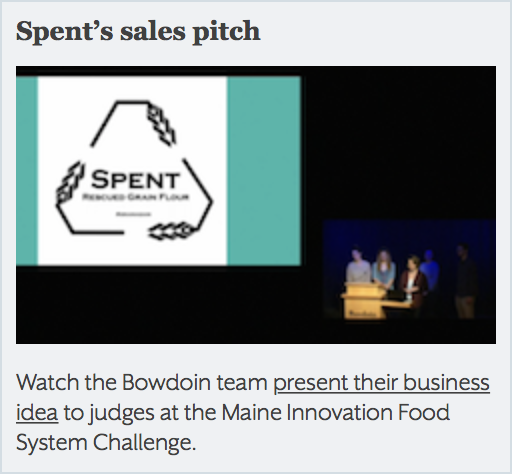
The team — which includes Eleanor Paasche ’20, Joe Hilleary ’20, Stephanie Sun ’18, and Lenoir Kelley ’19 — came up with their proposal while participating in the second annual Maine Food System Innovation Challenge. This business-accelerator contest, which is co-chaired by Bowdoin Professor Emeritus of Biology and Biochemistry Tom Settlemire, offers two tracks: one for enterprise teamsand one for college students. The competition aims to spur entrepreneurial ideas that could bolster Maine’s local food economy. Winners receive cash prizes.
The competing teams attended workshops, met with experts, and presented their pitches at a weekend event hosted by Bowdoin earlier in November. Teams from Unity College, Colby College, College of the Atlantic, and St. Joseph’s College also competed.
This year, the challenge for college students was to come up with a way to reduce food waste. Up to 40 percent of the food grown in the country is not harvested or is thrown away, adding up to a $165 billion loss per year. Meanwhile, 48 million people in the US go hungry, according to the organizers of the Maine Food System Challenge, and the approximately 130 billion tons of food waste uses forty-five trillion gallons of fresh water and generates about eight percent of global greenhouse gas emissions.
Huber-Weiss and her team are calling their proposed flour business Spent. They split a $5,000 first-place prize with the team from College of the Atlantic. In addition to money, both the enterprise and college teams are provided with resources such as business planning, marketing advise, and legal services, according to Settlemire.
The next step for Spent will be to survey breweries to figure out the logistics of acquiring their grain, according to Huber-Weiss. “It’s a service to breweries to get their grain,” she said. “You just have to be reliable in your pick-up times.”
Stephanie Sun ’18, one of the team members, said she enjoyed working outside of the class to find local solutions to local problems. “There is something to be said for the value of the muddle-through factor of this undertaking,” she reflected. “Through generating ideas or making mistakes that had real consequences, this was a great way to work beyond the classroom and be self-directed.”
Settlemire said the Maine Innovation Food System Challenge is attempting to ameliorate the problem of Maine’s dismal food production. Maine farms produce less than 20 percent of the food consumed in the state. “Many of us feel this is an opportunity that needs correcting and at same time provides great opportunity for economic growth,” he said. If Maine could double its food production, it could inject $1.2 billion into the state economy, he noted.
